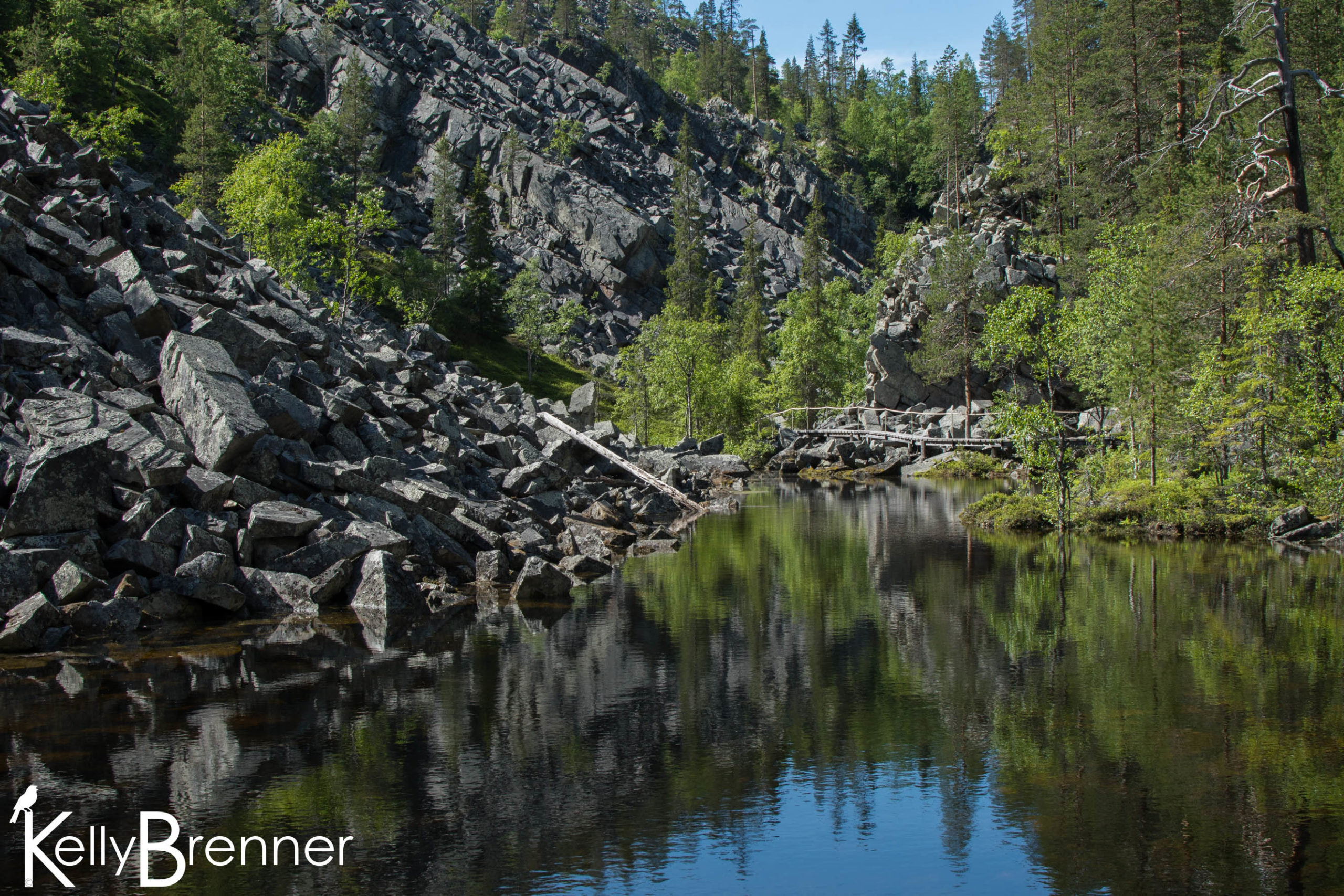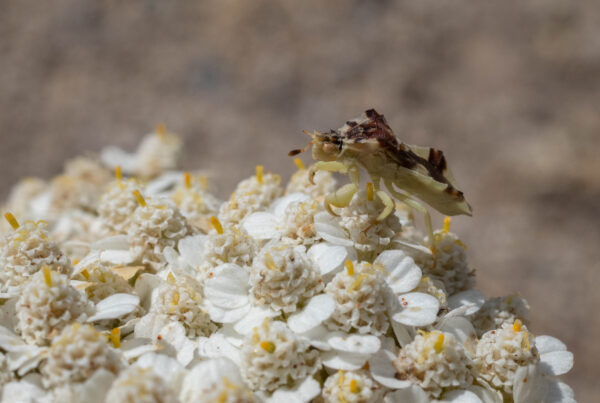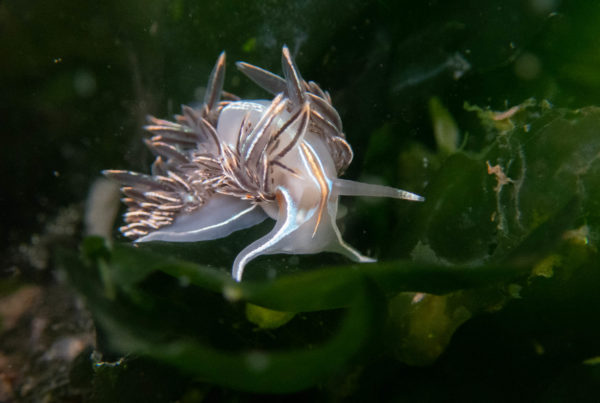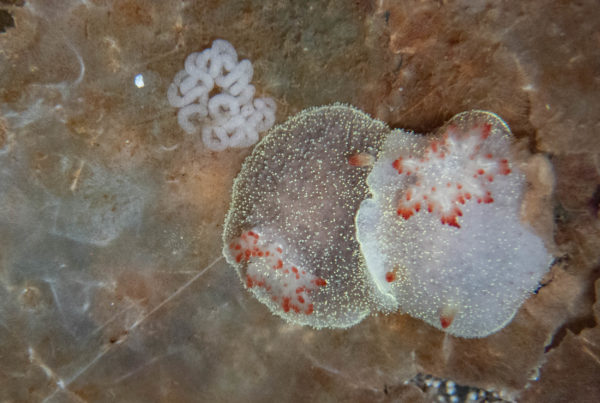Our second day at Pyhä-Luosto National Park in the Finnish Lapland began with me pointing out that we had not yet seen the bird on the park’s logo, a Siberian jay despite descriptions of the park saying they were very common and regularly investigated visitors. No sooner had we entered the park that morning, than the eldest kid in our group pointed out a bird, which was none other than a Siberian jay. They are curious birds, like other corvids, and this one came closer and closer, tree by tree, until it was literally sitting above us. A second joined in surveying of the human visitors and we had the luxury to admire the subtle red wing feathers as they blazed in flight backlit by the sun. They perched so close I could see a patch of beige feathers curling up and over the base of their beak and their red tail feathers hanging down like a pendulum. All too soon they realized we had nothing to offer and vanished.
We continued on through the sunny forest and spotted a dragonfly jet across the path. It landed on a tree in the sun and we all got a close-up look as it warmed itself. We encountered a few more sunning themselves on trees before again hearing the cuckoo. We were approaching the same area we had heard it the day before and again I tried, in vain, to find it. Just like the previous day, as soon as I thought we were getting close it suddenly called from the opposite direction.

We encountered the same group of buildings, but this time we knew it was the crossroads called Isokuru and we were headed for the Isokuru Gorge. This geologic feature is “located between the Kultakero and Ukonhattu fell tops and is Finland’s deepest gorge at 220 metres deep. A trail with duckboards at the bottom of the gorge leads to Lake Pyhänkasteenlampi and to the Pyhänkasteenputous Waterfall.”
From the buildings, we walked down the long set of stairs, returning to the boulder field we had passed over the previous day. Once again I admired the lichens covering the rocks, and would continue to do so the remainder of the walk. Not only were the rocks coated, but there were many different species as well. There were crustose lichens, those flat against the rock, foliose lichens creating leafy rosettes, and foliose lichens standing up. All of them in many shapes and colors.

We turned right, having come from the left the day before, and followed the boardwalk over the boulders to a pond, the first of many. The pond area was lush and green with plants. Lichens mixed with mosses creating colorful miniature landscapes I was sure fairies would inhabit. The water was not deep, but it was perfectly clear. A couple of dragonflies flew around the pond, landing on the boardwalk, railing and trees. As it warmed we encountered more and more dragonflies until they were on many trees and all over the boardwalk. I counted six on a single tree trunk. I spotted a lizard, only unlike the one the day before, this one stayed where it was for a couple of minutes so we could get a look. It was a viviparous lizard, a northern species which is often the only species found in areas like the Lapland.
Another insect was a constant presence, that of horseflies. At first our group spent a log of time dodging what we thought were bees. Then one landed on my leg and I saw the colorful striped eyes and realized they were horseflies. Curiously, none ever bit us, although they followed us the entire way.

I saw only one butterfly, a blue, the entire walk. But I was otherwise captivated by the abundance of dragonflies. As we continued on from the small pond, we entered the gorge, a long slope of lichen-covered boulders on our right and a series of ponds on our left. Some of the ponds were bordered by steep walls of stone creating a landscape that could easily be found in Rivendell. In fact, all of the landscape put me in a Middle Earth mindset.
At one point the boardwalk led us out into a large bowl-shaped opening in the gorge. It felt like a giant had dropped handfuls of boulders and we were walking through them. The entire hillside was covered in the boulders and this was the only area in the entire park which was restricted. Nobody was permitted off the trail and it was easy to see why looking at the loosely strewn boulders. Standing at the bottom, surrounded by large rocks was very unnerving, while at the same time being in complete awe. The boardwalk ended and we discovered a set of stairs had been carefully laid out with flatten rocks. Some of the rocks had ripples on them, a reminder of the ancient seabed landscape that was once there.
Water returned to the landscape again and I saw black and red dragonflies, like I had first seen the day before. A different dragonfly landed next to the path and I was amazed to see it was an iridescent green color, unlike any I’d seen before. I later found it was a Downy Emerald in my book.

We arrived a longer pond with a steep slope of rocks opposite the boardwalk and a bench where we sat to have our lunch. I don’t know that I’ve ever had lunch in a nicer place before. The water’s surface was perfectly calm and reflected the blue sky and the patches of green trees. The boulders entered the water in a perfect mirror tricking the eyes by hiding the water’s edge. At the far end, the boardwalk was visible following around a stone outcrop. The horseflies settled on the bench with us and I studied their hypnotic green and red striped eyes.
We followed the path as it continued around the pond, passing through a small woodland before going around the outcrop I had seen. Just around the corner we heard the sound of our destination, a waterfall. We had arrived at Pyhänkasteenputous Waterfall, a sacred place for the Sami people. The water fell in a narrow ribbon from the top in front of a rocky face arranged in a ‘V’ shape landing in a pool hidden from us by a mound of rocks. The water moved unseen from there to a lake where we stood on a platform watching the water fall 17 meters.
We appreciated the waterfall before deciding to continue following the trail to the top of the fell. We climbed many stairs and I stopped regularly to turn around and view the gorge. We were at the end of it and I could see where the slope began. Again I had the impression of a giant tossing the rocks like a handful of pebbles when I looked at the giant boulders resting on the slopes. Near the top I looked back at the gorge the way we had come and was surprised just how deep it was. Inside the top of the gorge rather disappears, but at the top I could easily see how high they stretched into the sky.

Having accomplished the climb, with all the kids, we turned and retraced our steps, back past the waterfall and to the beautiful pond again. As the rest of the group continued on, I stopped to watch dragonflies swarming around the rock outcrop. I looked up and saw dozens flying over my head and saw many landing and lifting off from the rocks on the sunny rock outcrop.
I wandered back, having lost sight of my group and stopped to watch more dragonflies and admire the landscape. I stopped frequently to photograph the lichens and noticed many spiders running among the moss and lichens in the rocks. I greatly admired the complex miniature landscapes of the boulders where mosses and lichens grew together and spiders lived. There was an entire world in those stones.






